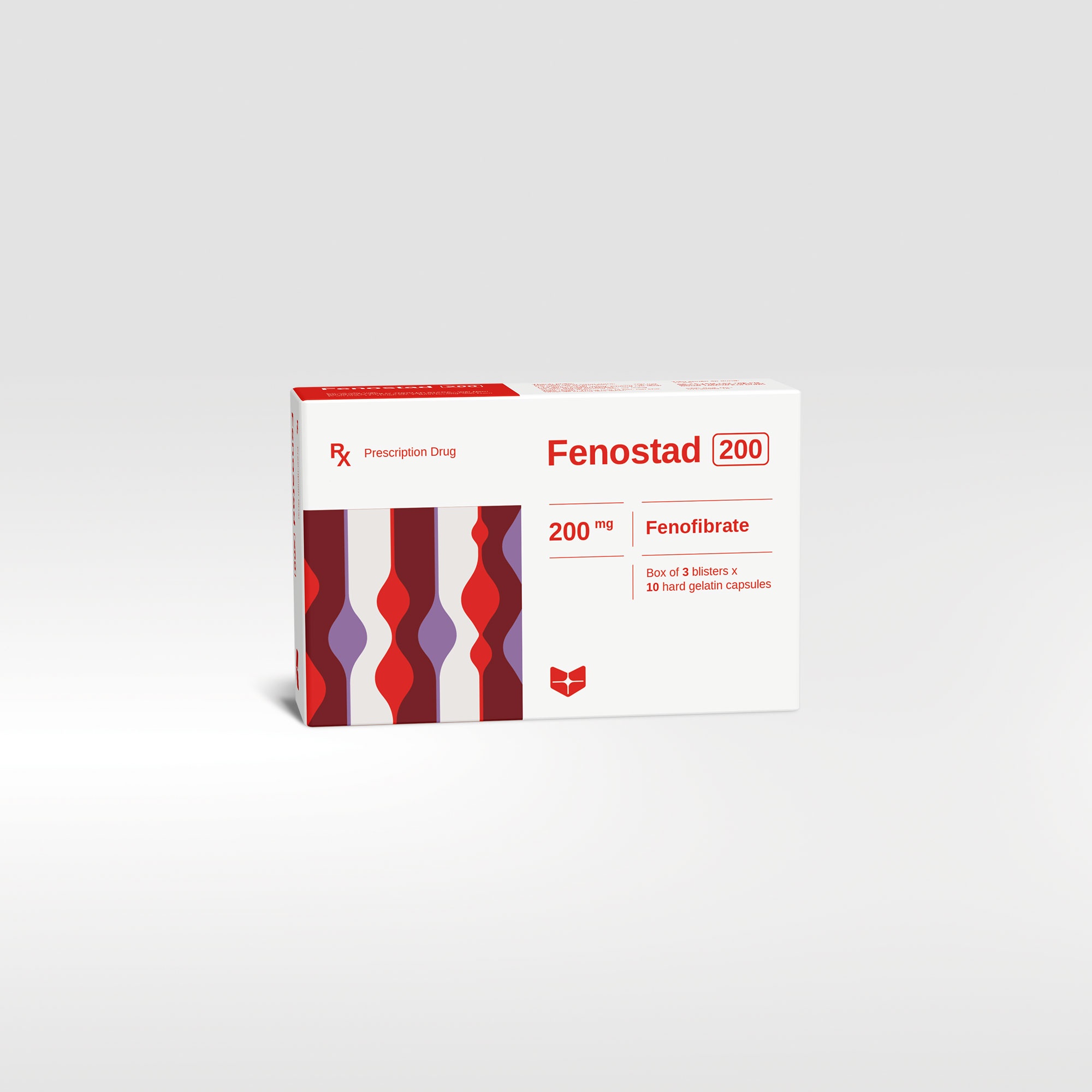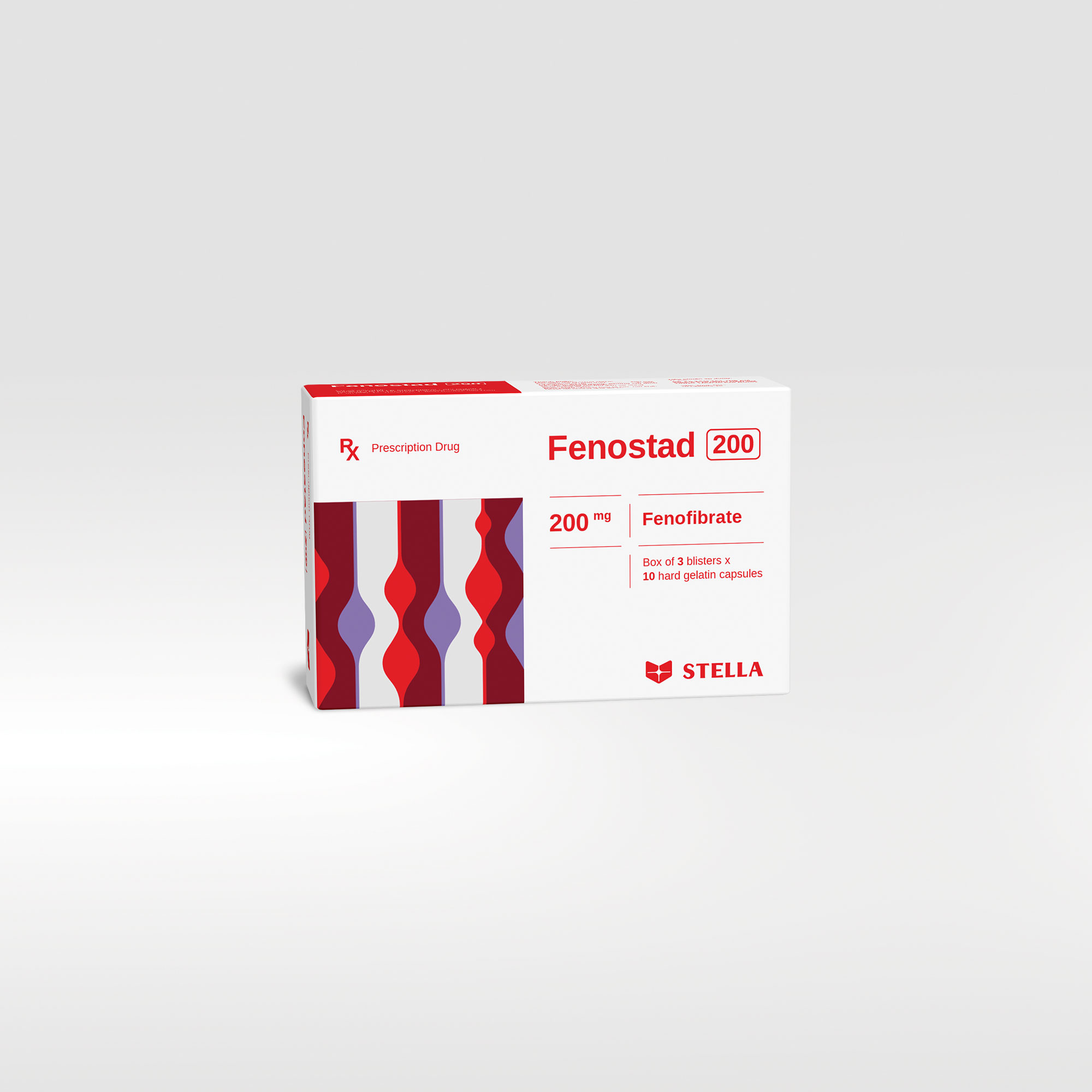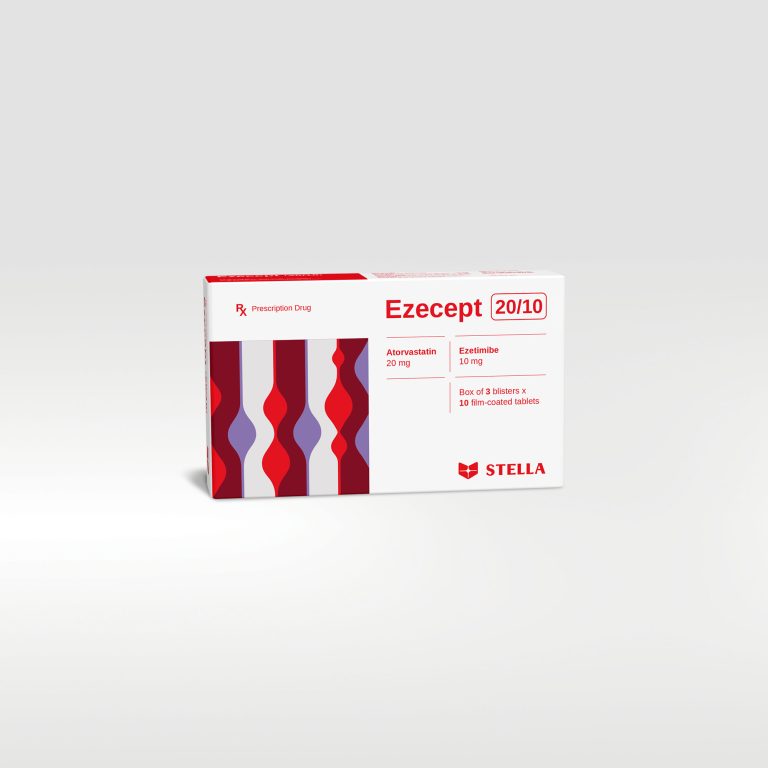Fenostad 200 Rx
Fenofibrate, a fibric acid derivative, is a hypolipidemic drug. By inhibiting the hepatic biosynthesis of cholesterol, fenofibrate reduces atherogenic fractions and raises the production of HDL and reduces blood triglycerides. Thus, The repartition of plasma cholesterol is markedly ameliorated.
| Pack size | Box of 30 capsules |
| Shelf-life | 36 months |
| Composition | Fenofibrate |
| Dosage forms and strengths | Hard gelatin capsule: 200 mg |
Product code :














